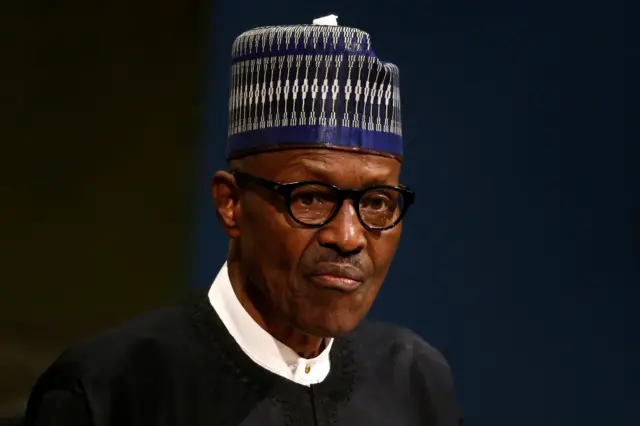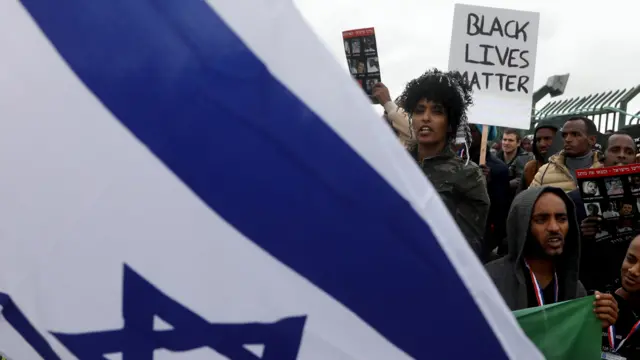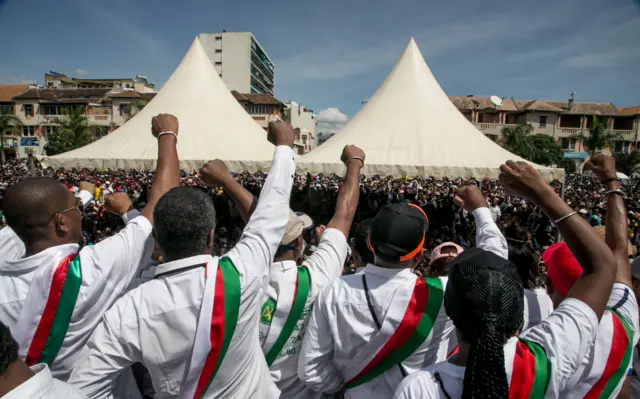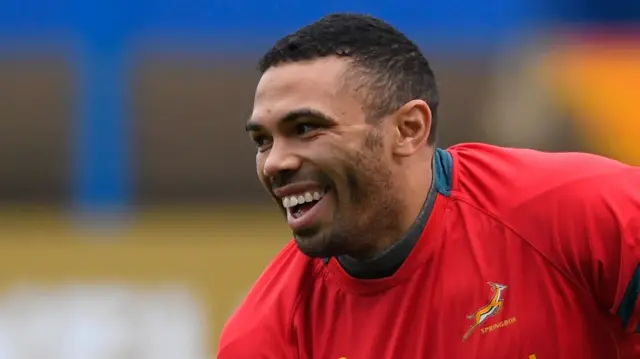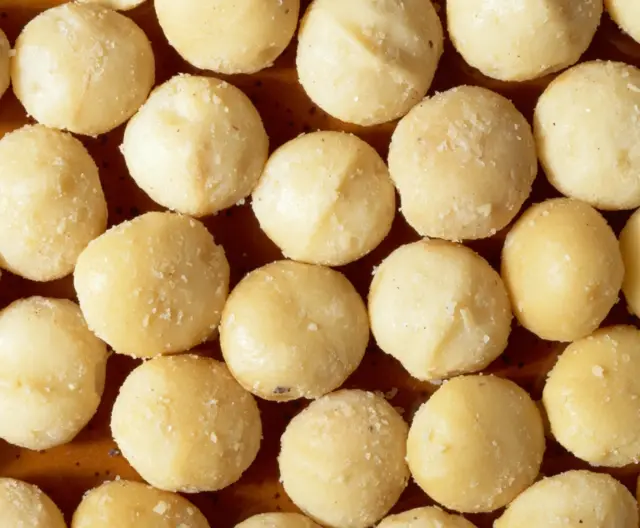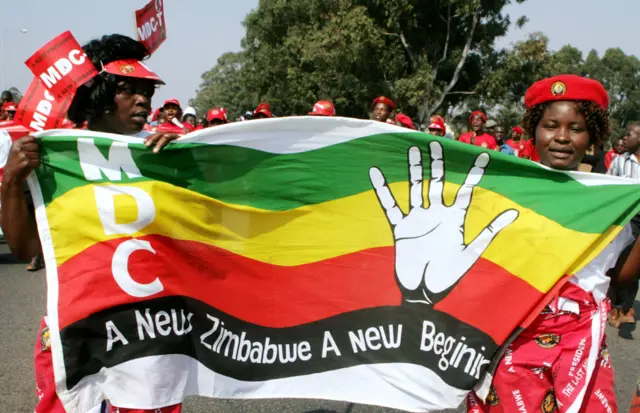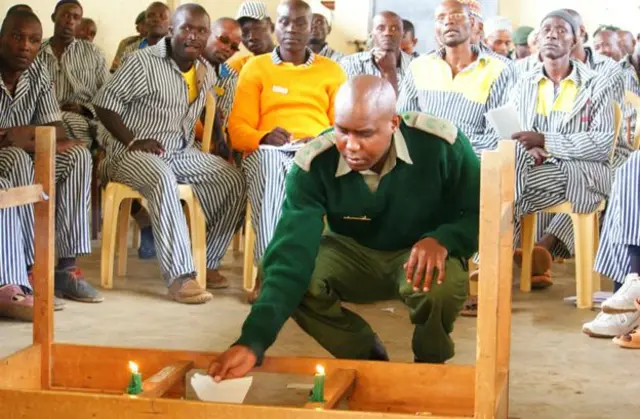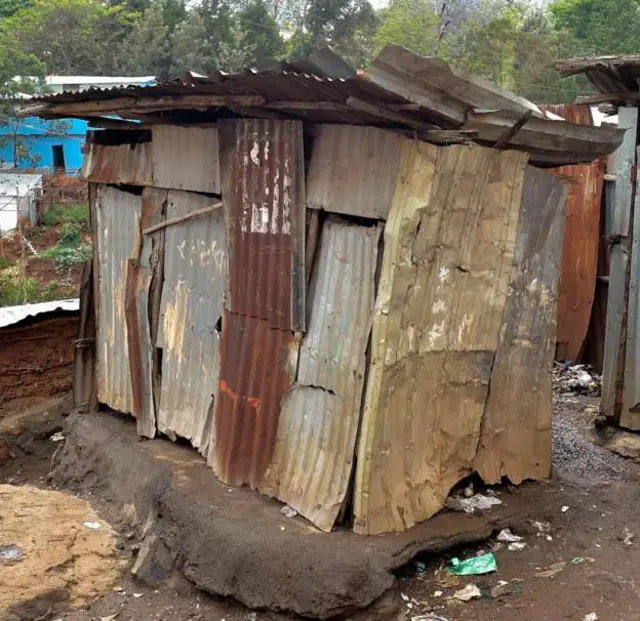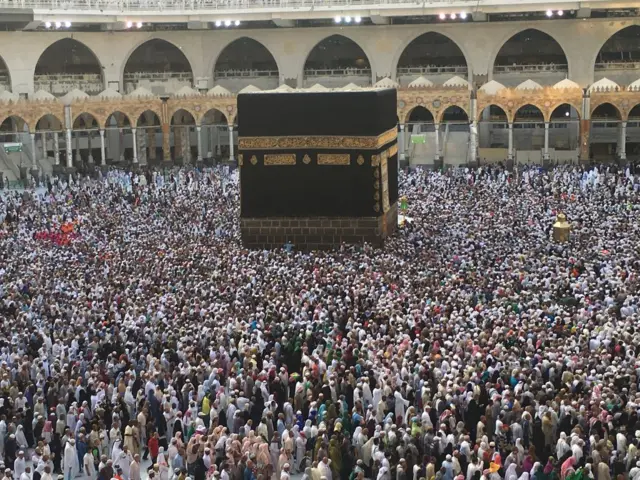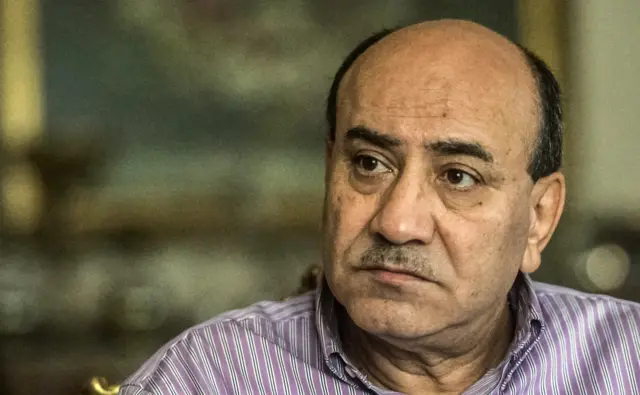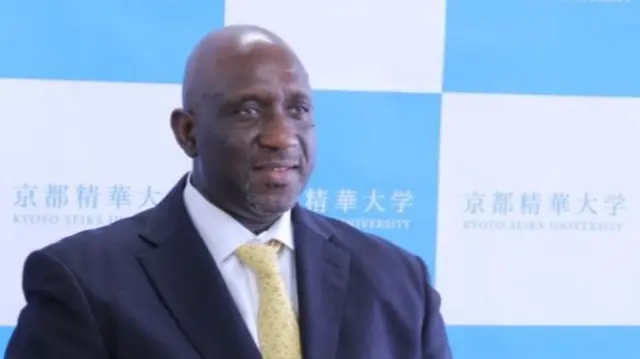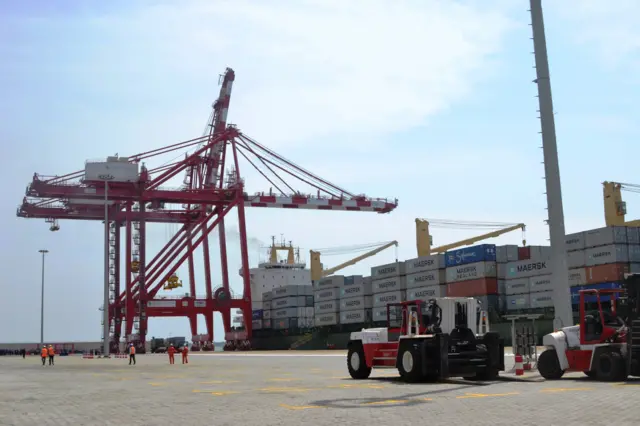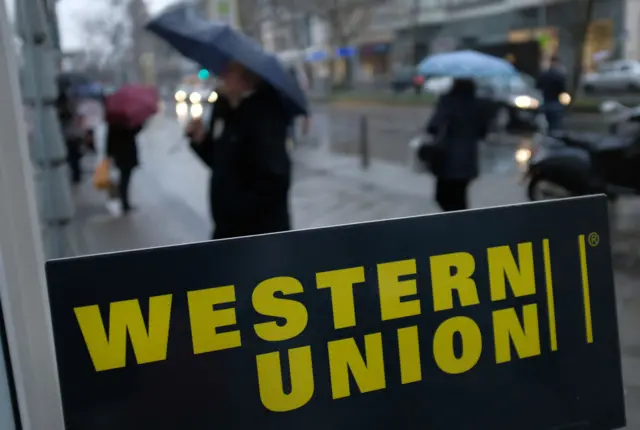DR Congo opposition leader addresses mass rallypublished at 17:10 BST 24 April 2018
Thousands of supporters of the party of veteran opposition leader, the late Etienne Tshisekedi, are in the capital Kinshasa to show their support for his son and their current leader Félix Tshisekedi.
A journalist for France24 says Mr Tshisekedi has so far appealed for a minute's silence to remember victims of recent violence in the country and discussed concerns over the possible use of 100,000 new and untested electronic voting machines in long-awaited awaited elections.
He also says Mr Tshisekedi addressed the row over the repatriation of his father's body from Belgium, which authorities have refused to allow.
Allow X content?
This article contains content provided by X. We ask for your permission before anything is loaded, as they may be using cookies and other technologies. You may want to read X’s cookie policy, external and privacy policy, external before accepting. To view this content choose ‘accept and continue’.
It's the first time the opposition has been allowed to hold a mass rally in two years.
Our colleague Poly Muzalia sent these photos from the scene earlier:
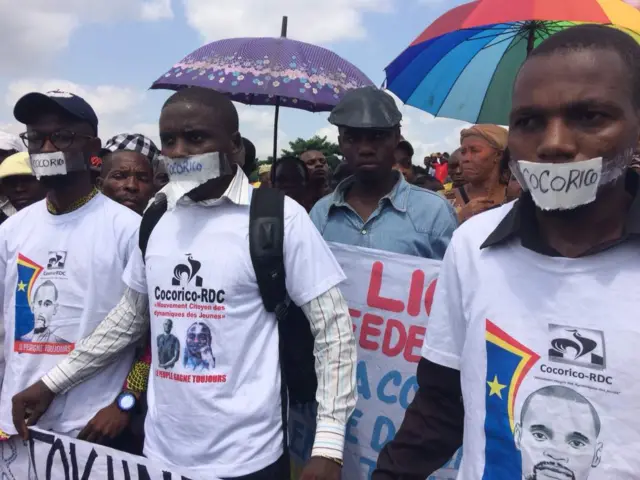 Image source, Poly Muzalia/ BBC
Image source, Poly Muzalia/ BBC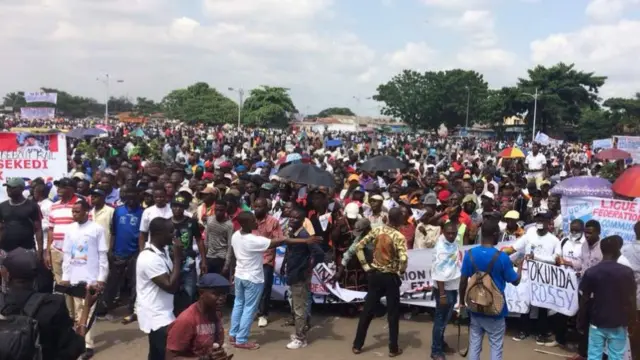 Image source, Poly Muzalia/ BBC
Image source, Poly Muzalia/ BBCThe rally marks the 28th anniversary of multi-party politics in the country.
Tensions are growing over President Joseph Kabila's refusal to quit even though his mandate expired in December 2016.

